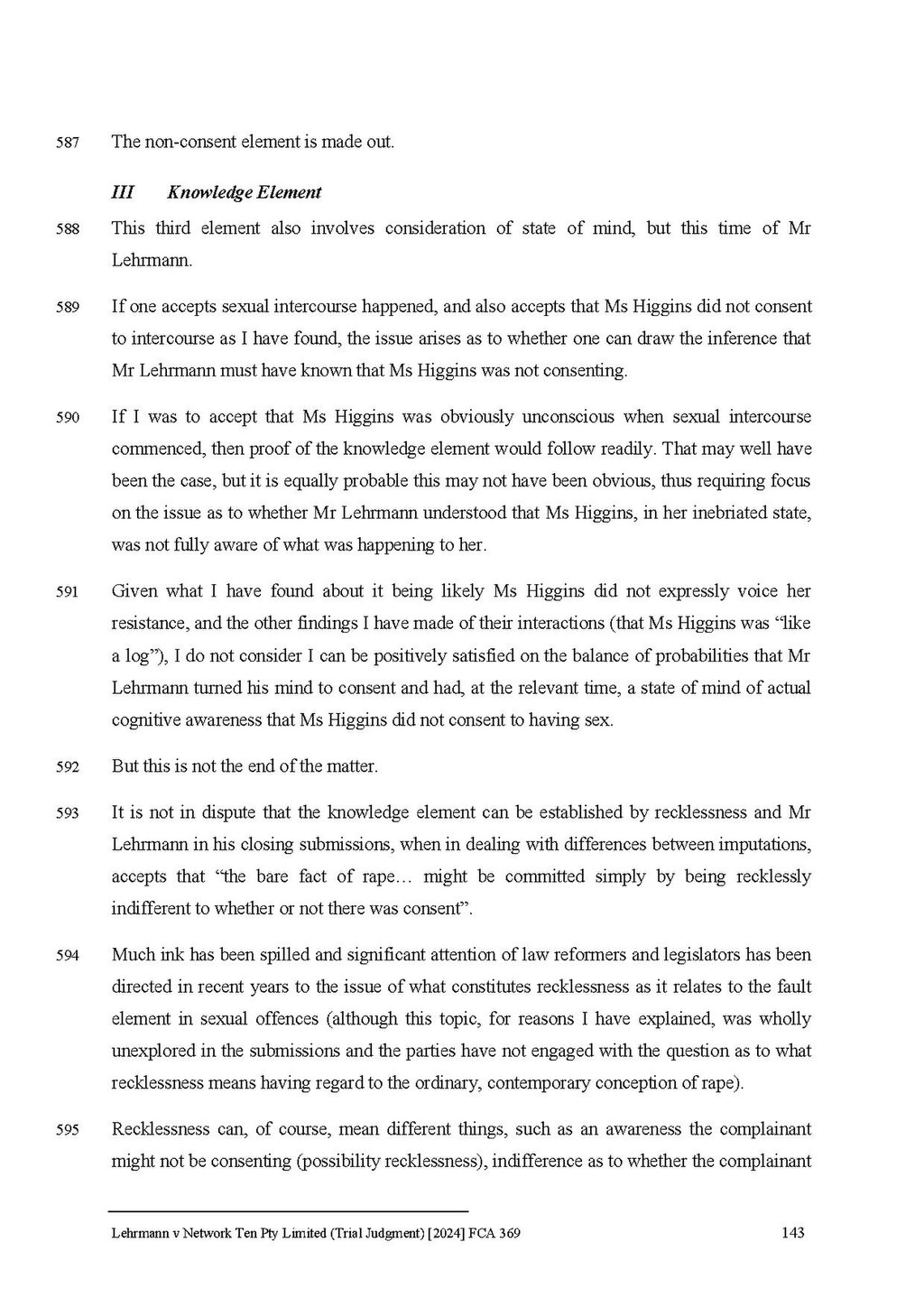587 The non-consent element is made out.
IIIKnowledge Element
588 This third element also involves consideration of state of mind, but this time of Mr Lehrmann.
589 If one accepts sexual intercourse happened, and also accepts that Ms Higgins did not consent to intercourse as I have found, the issue arises as to whether one can draw the inference that Mr Lehrmann must have known that Ms Higgins was not consenting.
590 If I was to accept that Ms Higgins was obviously unconscious when sexual intercourse commenced, then proof of the knowledge element would follow readily. That may well have been the case, but it is equally probable this may not have been obvious, thus requiring focus on the issue as to whether Mr Lehrmann understood that Ms Higgins, in her inebriated state, was not fully aware of what was happening to her.
591 Given what I have found about it being likely Ms Higgins did not expressly voice her resistance, and the other findings I have made of their interactions (that Ms Higgins was "like a log"), I do not consider I can be positively satisfied on the balance of probabilities that Mr Lehrmann turned his mind to consent and had, at the relevant time, a state of mind of actual cognitive awareness that Ms Higgins did not consent to having sex.
592 But this is not the end of the matter.
593 It is not in dispute that the knowledge element can be established by recklessness and Mr Lehrmann in his closing submissions, when in dealing with differences between imputations, accepts that "the bare fact of rape… might be committed simply by being recklessly indifferent to whether or not there was consent".
594 Much ink has been spilled and significant attention of law reformers and legislators has been directed in recent years to the issue of what constitutes recklessness as it relates to the fault element in sexual offences (although this topic, for reasons I have explained, was wholly unexplored in the submissions and the parties have not engaged with the question as to what recklessness means having regard to the ordinary, contemporary conception of rape).
595 Recklessness can, of course, mean different things, such as an awareness the complainant might not be consenting (possibility recklessness), indifference as to whether the complainant is consenting (indifference recklessness) and failure to give any thought as to whether the complainant
